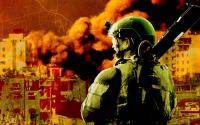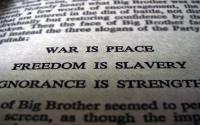20 July 2006Paul Rogers
To most Israelis, the bitter conflict now playing out in Lebanon is an essential requirement for Israel's security. It may be the sixth war Israel has fought in less than sixty years (as well as suppressing two Palestinian intifadas) but the effects of Hizbollah's incursions and the many hundreds of rocket strikes into northern Israel mean that there is no alternative.
The Israeli government and the Bush administration may well believe that Hizbollah can be crippled if not destroyed, and Israel made safe again. The reality may actually be very different, and there is now a strong argument that what Israel is doing in Lebanon is actually going to make it substantially less secure, especially if the process is measured over the next decade rather than weeks or months. To appreciate this, it makes sense to put the current crisis in the perspective of those previous conflicts.
The five wars
Israel's establishment as a state in May 1948 was followed immediately by its first war, a bitter conflict fought largely against Egypt, Jordan and Syria, with Iraq and Lebanon on the periphery. Palestinians were scarcely involved in the fighting but hundreds of thousands sought refuge, mostly in Lebanon, Jordan (the West Bank) and Gaza. With the subsequent ceasefires Israel ended up with a land area much larger than it had been allocated under partition, occupying around 80% of mandated Palestine. Even so, it still saw itself as vulnerable, not least because of a divided Jerusalem and an extraordinarily convoluted border.
The collusion with Britain and France over the Suez crisis of 1956 (the second war) briefly gave Israel a buffer force of United Nations peacekeepers, effectively separating it from Egypt in Sinai; Nasser's later demand for the withdrawal of the UN emergency force was one of the key factors leading to the six-day war of June 1967 (the third war), when Israel occupied the West Bank, Sinai and the Golan heights.
To many Israelis the six-day war was the conflict that should have given them lasting security, and it is true that Jordan was chastened and that Egypt and Syria had little stomach for further conflict. However, with well over a million Palestinians now under Israeli military occupation and even more in refugee camps across the region, the end of the 1960s instead saw the rise of Palestinian nationalism.
In the early 1970s, Israel saw the Palestinian liberation movements as the major threat, and was largely caught by surprise by the Yom Kippur/Ramadan war of October 1973 (the fourth war) when Egypt and Syria attempted to recover their lost territories and even force Israel to concede a peace agreement with the Palestinians. They failed and the war ended almost as it had begun, with heavy Egyptian and Syrian losses but with Israeli society deeply shocked by the loss of some of its elite troops.
That experience, coupled with various corruption scandals, saw the end of the thirty-year Labour coalition government and the rise of the right-wing Likud. Menachem Begin and others concentrated on controlling the West Bank and Gaza and, against some internal opposition, negotiated a withdrawal from Sinai and a fragile peace deal with Egypt at Camp David.
That war did little or nothing to diminish the determination of the Palestinians and with much of their activity coming from Lebanon, resulted in the Israeli occupation of southern Lebanon and the siege of West Beirut in 1982 (the fifth war). The subsequent bitter conflict with the newly-formed Hizbollah militias was to lead to a defeat for the Israeli Defence Forces (IDF), as domestic support for the occupation of southern Lebanon waned in the face of persistent losses from guerrilla actions. Israel withdrew from most of the territory by 1985, though it hung on to a narrow strip until May 2000.
Israel's vulnerable strength
By the end of the 1980s, Israel might have considered itself secure from neighbouring states such as Syria, Jordan and Egypt, but more immediately it was facing the first Palestinian intifada (uprising). The use of young Israeli soldiers in robust and often violent actions against Palestinian civilians, especially in the West Bank, was deeply unsettling for many Israelis and was one of the reasons why the Oslo peace process initially stood a chance in the early 1990s. It foundered for many reasons, not least the assassination of prime minister Yitzhak Rabin by a Zionist extremist in November 1995.
During the early 1980s, around a million Jews migrated into Israel from the former Soviet Union. Most were absolutely determined to gain real security for the first time in their lives; the net effect was to move Israel further to the right. Such trends, coupled with severe failures of governance in the Palestine Authority, were to lead to the outbreak of the al-Aqsa intifada in September 2000, and its suppression with force even greater than had been meted out a decade earlier.
After the election of George W Bush and the 9/11 attacks, as well as the rise of Christian Zionism in the United States, Israel was even more protected by the one surviving superpower. Moreover, it had by far the most powerful military forces in the region. Even so, there were new vulnerabilities, from suicide bombs within Israel and from rockets from southern Lebanon. Neither of these could be attributed to enemy states and neither had easy solutions. Moreover, under Ariel Sharon there was little interest in a just settlement with the Palestinians.
By the middle of this decade what remained was the remarkable situation of a very strong and militarised society with a pervasive sense of vulnerability and a culture of responding with massive force to threats to its security. After nearly six decades of conflict, with thousands of Israelis killed, many tens of thousands of Arabs killed, and millions of Palestinians displaced across the middle east and beyond, Israel was bereft of alternatives to living behind supposedly secure borders while expecting to deter external enemies by its sheer military power.
The impact of Hizbollah's missiles should not be underestimated. It is at least on a par with the Iraqi Scuds of 1991 which forced the Americans to divert huge resources during the first war with Iraq to prevent a potentially disastrous Israeli entry into that war. Moreover, the missiles hitting Haifa and other Israeli towns and cities are not coming directly from an enemy state but from a much more diffuse opponent.
Israel is responding in a manner which is true to its long-term strategies, seeking not just to cripple Hizbollah directly, but to do massive damage to the Lebanese economy as a whole. On present trends this will continue until Hizbollah runs out of munitions and may well extend to exemplary raids on Syria and even Iran. Washington will not counsel against either.
A time to rethink
To Israeli military strategists there is no alternative, but to a detached analyst Israel's course is potentially disastrous, for two major reasons. The first is that it will produce a wave of further antagonism across the region against Israel and the United States, leading to further radicalisations in the years and even the decades to come. This may be obvious only to some people – there is limited coverage in the European media of the villages being razed and the hundreds of civilians being killed, but virtually none in the United States, whereas there is almost wall-to-wall coverage on al-Jazeera and other regional news networks.
The second reason is more subtle and potentially much more dangerous for Israel. In the first week of this war, we have already seen longer-range rockets hitting Haifa and an anti-ship cruise missile wrecking one of the world's most modern warships – one supposedly equipped with defences against precisely that kind of attack (see "Israel, Lebanon, and beyond: the danger of escalation", 17 July 2006). There may have been some Iranian Revolutionary Guard involvement (a charge that could equally be propaganda), but these missiles were essentially fielded by a sub-state actor – Hizbollah.
Such weapons are coming on to the world's arms markets in increasing numbers and with greater sophistication. The Israelis have long known this, and they have poured hundreds of millions of dollars into anti-missile research and development since the 1991 Gulf war. The results have had little effect against Hizbollah's capabilities and the overall international race between offensive missiles and defensive systems is very much on the side of the former.
Russia and China are both hugely keen to expand their arms-export markets, primarily for monetary gain but with the added advantage that such proliferation can limit the power of the United States and surrogates such as Israel. It can be expected that paramilitary groups such as Hizbollah (and maybe others that have not even yet been formed) to acquire much more advanced systems with longer ranges, inbuilt counter-defensive systems, cluster munitions and other variants that will threaten the entire state of Israel, not just its northernmost districts.
As this trend develops over the next decade or more, Israel and the United States will probably attempt to spread their zone of preventative control even further beyond the borders of Israel; but it is a race they will not be able to win, especially as the civilian destruction being experienced in Lebanon is replicated in other parts of the region. The combination of antagonistic motivations and technical innovations will serve eventually to make even Israeli military planners see it as a self-defeating process.
In the final analysis, Israel will be forced to rethink its entire security paradigm and progressively deal with Hizbollah, Hamas and others. The massive response to Hizbollah that is unfolding day by day in Lebanon, with all the human consequences, might possibly be the last example of Israeli "old thinking". Even if it is, any change will be a long and painful process. But it will eventually come, and it could be the prelude to a lasting and just peace.
http://www.opendemocracy.net/themes/article.jsp?id=2&articleId=3755






